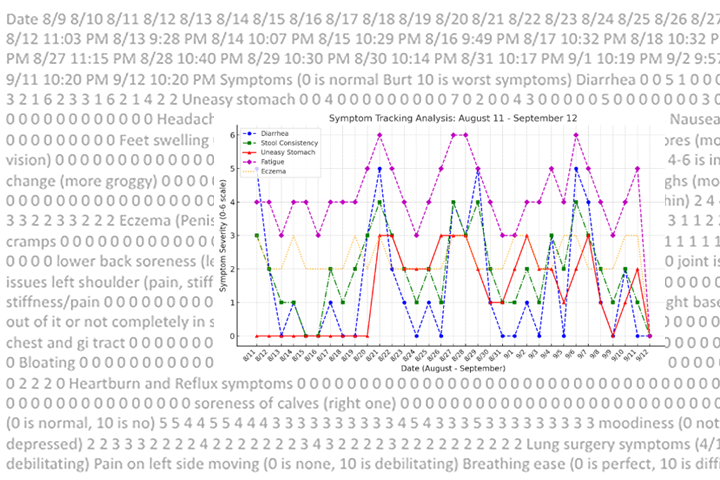Shedding Light on Chemo Brain

Chemotherapy has been one of the great success stories of cancer treatment.
Like any medical therapy, there are potential side effects, some of which are almost universal, such as gastrointestinal issues, hair loss, or fatigue.
But many patients also experience a constellation of symptoms that affect memory, resulting in a kind of mental fogginess. These symptoms, which include difficulties with concentration, multi-tasking, name recall, and word retrieval, among others, are very consistent among cancer patients, no matter what cancer they may have. In the past, most doctors attributed this fogginess to depression and the stresses of a cancer diagnosis and ongoing treatment, rather than a potential treatment side effect.
Mostly due to the large number of cancer survivors who have told doctors about changes in memory and other cognitive abilities during or after cancer treatment, recent research has uncovered new evidence about the phenomenon. And today “chemo fog” is recognized as a very real potential side effect of cancer treatment.
What Is Chemo Fog?
Although “chemo fog” or even “chemo brain” is used by patients to describe the mental fogginess, you may also see it referred to as cancer treatment-related cognitive impairment or post-chemotherapy cognitive impairment. That’s because chemotherapy is not always the sole cause of the condition. Radiation therapy, surgery, and hormone therapy have also been shown to cause so-called chemo brain.
Some studies suggest there are a multitude of factors that come into play. Certain drugs used during cancer chemotherapy may make the white and gray matter of the brain shrink slightly, which can affect how well we process and acquire information. Other agents may disrupt brain cell signaling and how neurons use oxygen. Multiple drugs used for long periods of time also seem to increase the risk for chemo brain. There is also evidence that some patients may have an inherited susceptibility to chemo brain. Even cancer treatment itself can be a factor if there are complications such as anemia, fatigue, nutritional issues, sleep issues, or infection, for example, all of which can affect mental sharpness.
Right now, doctors don’t know which patients will have the toughest time with chemo brain, but researchers are investigating several different potential genetic markers for increased vulnerability to the condition, as well as genes that may offer some protection, according to the National Cancer Institute (NCI).
Each patient experiences chemo brain slightly differently. Most only notice changes for a short period of time. Others report changes that last much longer.
How much quality of life is affected is also a very individual experience, but it can be especially frustrating for individuals who are in demanding jobs requiring significant concentration. These memory troubles can also potentially affect a person’s ability to feel comfortable in social situations, and may contribute to social isolation and depression, both of which add a layer of difficulty to maintaining a positive outlook during cancer treatment.
Steps to Ease the Confusion
Just as chemo brain affects everyone differently, there is not a one-size-fits-all remedy. One recent randomized trial found that using a cognitive rehabilitation program in which cancer survivors report cognitive symptoms after chemotherapy led to lower levels of anxiety, depression, and fatigue, and some research has already shown this kind of therapy can be effective for cognitive problems after cancer treatment, according to the NCI.
But many patients whose memory problems are not severely limiting report their own methods of coping. Some helpful suggestions include:
- Making notes in a planner or a trusty smartphone to record dates, appointments, and events. Sticky notes work too.
- The brain is a much like a muscle—use it or lose it. Doing crossword puzzles, memory games, or learning a new skill, for example, can do wonders for keeping the brain sharp.
- Exercise your body to the best of your ability since staying as physically fit as possible will improve mental alertness. You don’t have to run a marathon. In fact, memory and executive function, or decision-making abilities, are improved even after mild to moderate physical exercise, according to research that shows level of inflammatory cytokines are reduced—which translates to a better memory.
- Be mindful. Mindfulness is simply a term that translates to being present in the moment. You can be mindful through meditation, gentle yoga, and breathing exercises, for example. Mindfulness may develop your ability to pay attention, and could lead to better memory retention. Mindfulness has become very popular and often there are classes available at local hospitals, community centers, or libraries. There are also many books and DVDs available to help, too.
- Don’t multi-task if you don’t have to. Rather, focus on one task at a time.
- Make sure you are getting adequate sleep and eating as healthy a diet as possible.
- The most important thing: Don’t be shy about asking for help. Talk to your loved ones about your memory concerns and, of course, talk to your medical team, who can also provide strategies to help and ensure that other medical issues are not adding to the problem.
The American Cancer Society suggests keeping track of when memory problems are most prevalent, and what other medications you may be taking, both of which can provide useful information to your medical team.
The image with this article was created by David Trick, who is undergoing chemotherapy for stage IV colorectal cancer. He says, “I have tried to explain to others what chemo does to my cognition, but I do not think the realities of chemo brain have ever gotten through. So, I tried to capture it in my art using computer flame fractals. I hope my art succeeds where words have failed.”






